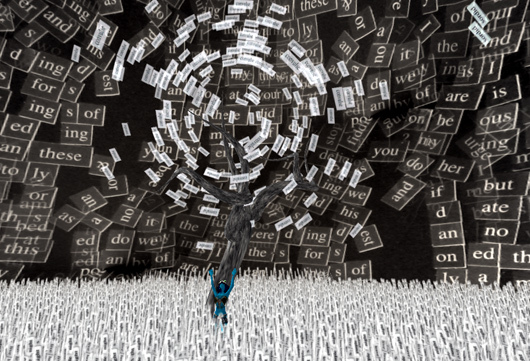Jesus wants us to be
happy
God created us with the capacity to be happy. We are so often discontent with our lives, we
forget the happiness we have been given.
We are made to feel pleasure, to enjoy life, to have joy, to be
satisfied with what we have. God’s
purpose for us all is for us to be happy in Him, to live lives of deep joy and
contentment. This doesn’t mean that we
won’t suffer, nor does it mean that we won’t also feel deep sorrow. But the overall purpose of our existence is
not to mourn, but to rejoice. For some of us, the long-lasting joy will have to wait until eternity. But we can all experience satisfaction and happiness now.
Happiness comes from
lifestyle choices
Studies have shown that our genetic make up—whether we are
generally a melancholy or bubbly person— only accounts for 10 percent of our
level of happiness. And our experiences—whether
someone insults us or we win the lottery—only accounts for 30 percent of whether
we are generally happy or not. What really
makes us happy or not is in our control.
This doesn’t mean that we should pursue happiness or
positive thinking. Just thinking happy
thoughts actually just means that we try to suppress negative thoughts and that
doesn’t work. Rather the way to be happy is to develop habits which make us satisfied
in the long term. Happiness isn’t the
same as pleasure—we must pursue long-term solutions, not short-term
excitements.
Basic Needs
Money doesn’t make us happy.
Studies have shown that money can make us happy, if we are desperate to
have our needs fulfilled, and money makes us satisfy those needs. But it isn’t the money that makes us happy,
but the meeting of our basic needs.
After one’s basic needs are met, then money has nothing to do with
happiness. To be happy, we need to make
sure we have what our bodies need: good food, water, rest, health, and connection
to other people.
“Give me neither
poverty nor riches, give me the food I need.” Proverbs 30:8
New Experiences
So often we think that if we had this item, we would be
happy. The new television, the better
computer, the bigger house, the collection of stuff we’d wanted for so
long. But stuff only makes us happy for
a moment because we are ultimately no different than the child we were who
would be overjoyed at the gift we longed for, and then seek the next item as
soon as the last was opened. Studies
have shown that instead of trying to grab more stuff, we should seek
experiences. We should go out on dates
with our spouses, take walks in beautiful neighborhoods, cook and enjoy a
particularly good meal. Things don’t
give us memories, good, unique experiences do.
Gratitude
In order to be happy, we need to be thankful for what good
we have. It is easy for some of us to
focus on complaining on what we don’t have or on how our lives fall short of
our ideal. If we want to be happy, we
need to make a regular habit of looking at the good in our lives and being
grateful for it. My family gathers once
a week to thank God for what good has happened that week. In the worst weeks, we thank God we are alive
and breathing. But almost every week,
each of us has something specific that we are grateful for.
“Every good and perfect
gift is from above.” James 1:17 “In
everything give thanks.” I Thessalonians 5:18
Contentment
We always have parts of our lives that aren’t going the way
we want. Sometimes it seems that there
is nothing in our lives that is going right.
Everything seems negative or hopeless.
We could complain, but that doesn’t help our attitude. We could get angry, but that only deepens our
frustration with life. When we are
tempted to complain, we don’t need to put on a false attitude of happiness, but
we can look at our lives and say, “I can live with this.” Our lives may not be what we want, but we can
teach ourselves to be content with what we have, especially if we can’t change
it.
“I have learned to be
content in all circumstances.” Philippians 4:11
Suffering
There are times in our lives in which we deeply suffer. Some of us live in deep poverty. Some of us are attacked or caused real pain.
At some point we lose someone we have deeply loved. Others of us have chronic
health conditions. Some of us deal with
pain on a regular basis. Some of us suffer because of our own poor choices—overwork,
sin, additions, pain in relationships. These conditions certainly effect our
happiness, and no amount of “happy thinking” will change that. However, in every kind of suffering we endure,
there is a benefit we can obtain from it.
We cannot just expect good will come out of suffering, but we have to
seek it. If our suffering comes from
sin, we can seek repentance and forgiveness.
If our suffering comes from illness, we can seek health. If our suffering comes from being attacked,
we can seek God’s redemption. The funny
thing is, when we return to our “normal” state after suffering, we are happier
than we were before. Enduring through
suffering and seeking help actually makes us happy, and more content with our
lives.
“We exult in our
tribulations, knowing that tribulation leads to endurance, endurance to proven
character, and proven character to hope.”
Romans 5:3-4
Contemplative Silence
Our world is more hectic than ever, and our own busyness is
often our own worst enemy. We all can
reach a point when we are so active that we become ineffective in the very
actions we pursue, and this leads to frustration and hopelessness. To reduce this frustration, we all need times
of silence and focus. This doesn’t mean
that we just tell everyone to shut up, but we get away from others and their
expectations and from all the work we need to do and we just stay quiet before
God. We listen to Him and to what He
wants to say. Perhaps He will say
nothing. Perhaps we can just enjoy the
rest. But in order for us to remain
content, we must have time with God, focusing on Him alone.
“Early in the morning,
when it was still dark, Jesus got up, left everyone, went to a secluded place and
prayed.” Mark 1:35
Positive
relationships
Our relationships with others deeply affect our attitudes
toward life in general. Our unhappiness
increases as we are isolated or lonely.
No matter how irritating or frustrating other people can be, they still
are the ones who will grant us the greatest source of happiness in our
lives. The fact is, though, people can
be—inevitably WILL be—irritating and frustrating, no matter how much we care
about them. And it is rare for a person
to be so bad that they will always be a source of pain and not joy. The habit we need to develop with others is
to seek the positive and avoid the negative.
Not to get rid of negative people, but to find the positive in all
people. The worst person has a good
habit or intentions—seek that, develop that in your interactions with the
person. You can’t make them better, but
you can encourage what you love about them when they are with you.
“Love one another”
John 13:34
Serve others
So many people think that happiness is created by focusing
on oneself, and one’s own pleasures or contentment. But one of the greatest tools of our own
happiness is acting on our compassion for others. The happiest people in the world are those
who regularly serve others, to no benefit for themselves. God made us to be content only when we are
taking part of our lives to serve others.
Seek a regular opportunity to serve those in need. Volunteer at a local organization or church
that helps the poor. Keep socks or
breakfast bars to give to the homeless when they have a sign. One of the best feelings you will have is
after you hear “thank you” from another person.
“Sell your possessions
and give to the poor and you will have treasure in heaven.” Luke 12:33
Thanks to those who
have studied the psychology of happiness over the past couple decades. This article was inspired by their studies
and many of the points drawn from their conclusions.



































